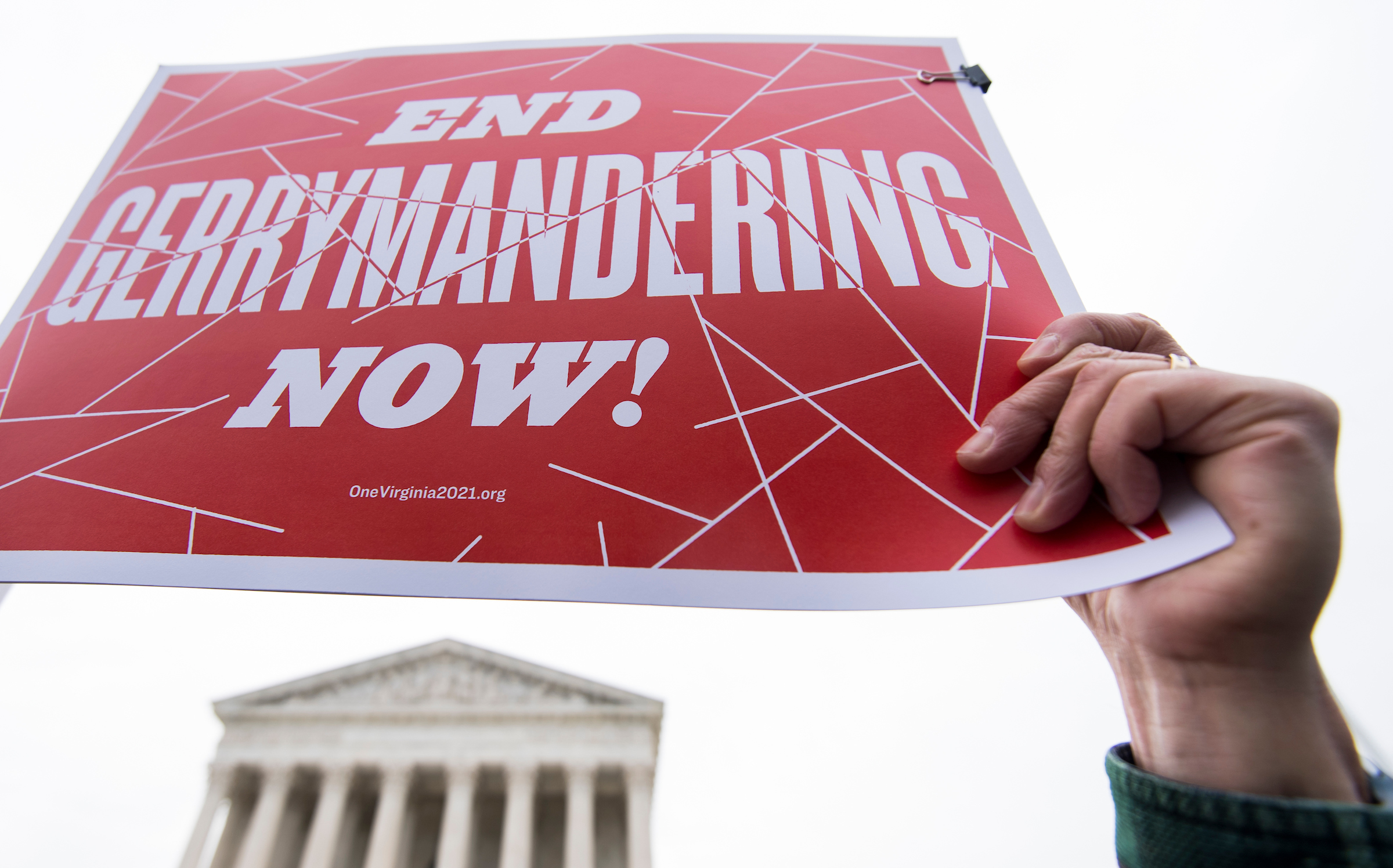Supreme Court Grapples With Partisan Gerrymandering Once Again
Maryland case was second of three redistricting cases before justices this term

Supreme Court justices gave no clear indication Wednesday that they knew how to rule in key cases about partisan gerrymandering, with one justice pitching a sort of group argument to settle the various challenges on the issue from three states.
In oral arguments in a case from Maryland, several justices said facts about how Democratic lawmakers redrew the 6th District in 2011 — which swung it from a solid Republican to a Democratic seat in the next three elections — seemed to violate the Constitution.
But the court grappled once again, as it did in a case out of Wisconsin argued five months ago, with the contours of when and how a state’s political maps can be challenged on the basis that they entrench a benefit to one political party over another.
Justice Elena Kagan, for example, pointed out that Maryland Democratic politicians such as Rep. Steny H. Hoyer made clear that they shifted voters to flip the 6th District from a 47 percent to 36 percent voter registration advantage for Republicans to a 45 percent to 34 percent advantage for Democrats. The new map increased the Democratic advantage in the state’s congressional delegation from 6-2 to 7-1.
“I mean, how much more evidence of partisan intent could we need?” Kagan said. A legal line to determine how much partisan influence on a congressional map is too much is not needed in this case, Kagan added, “because, however much you think is too much, this case is too much.”
Watch: The Many Ways to Draw a Gerrymander
But Justice Stephen G. Breyer, who called this a case of “extreme gerrymandering” where the intent was 100 percent political and it changed the outcome of the election, said a ruling for just this case is not enough.
“The problem is that’s not going to solve other cases and we’ll never have such a record again. I mean, the people who do the gerrymandering are not stupid,” Breyer said. “And, therefore, we will not do much to deal with a problem of serious dimensions that is national.”
Breyer’s comments indicate the justices are aware of the role that their decision could play in the American political landscape. Voter rights groups say partisan gerrymandering could get even worse in redistricting efforts after the 2020 census, as computers allow increasing accuracy in drawing up districts to ensure an advantage for one political party. Republicans and Democrats have already geared up for redistricting fights after the census.
At the arguments, Breyer suggested lawyers for three cases pending before the court might argue it out together — although no other justices jumped to back the idea. There’s the challenge on First Amendment grounds to a congressional district in Maryland, a challenge to North Carolina’s congressional districts on a different legal theory pending at the court, and the challenge to Wisconsin’s full state legislative map.
Several justices also questioned whether technical issues in the case, such as whether the courts could affect this fall’s elections or if it was already too late, should guide their decision.
Michael Kimberly, who argued Wednesday on behalf of Maryland voters who brought the case, told the justices that the map specifically intended to dilute the votes of Republicans in the northwest section of the state. Voters there had supported Republican Roscoe G. Bartlett, the district’s representative, for the preceding 20 years.
Currently, Inside Elections with Nathan L. Gonzales rates the race to replace retiring Democratic Rep. John Delaney Solid Democratic.
The justices are expected to decide the gerrymandering cases by the end of the term in June.





